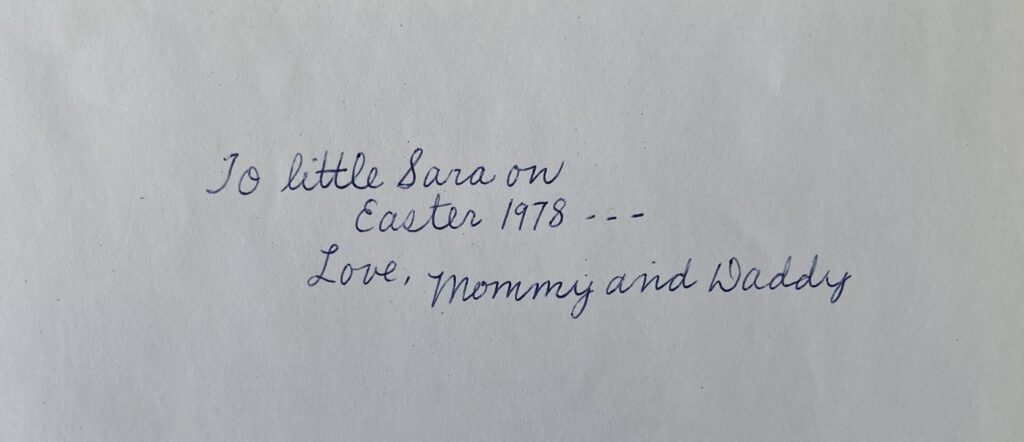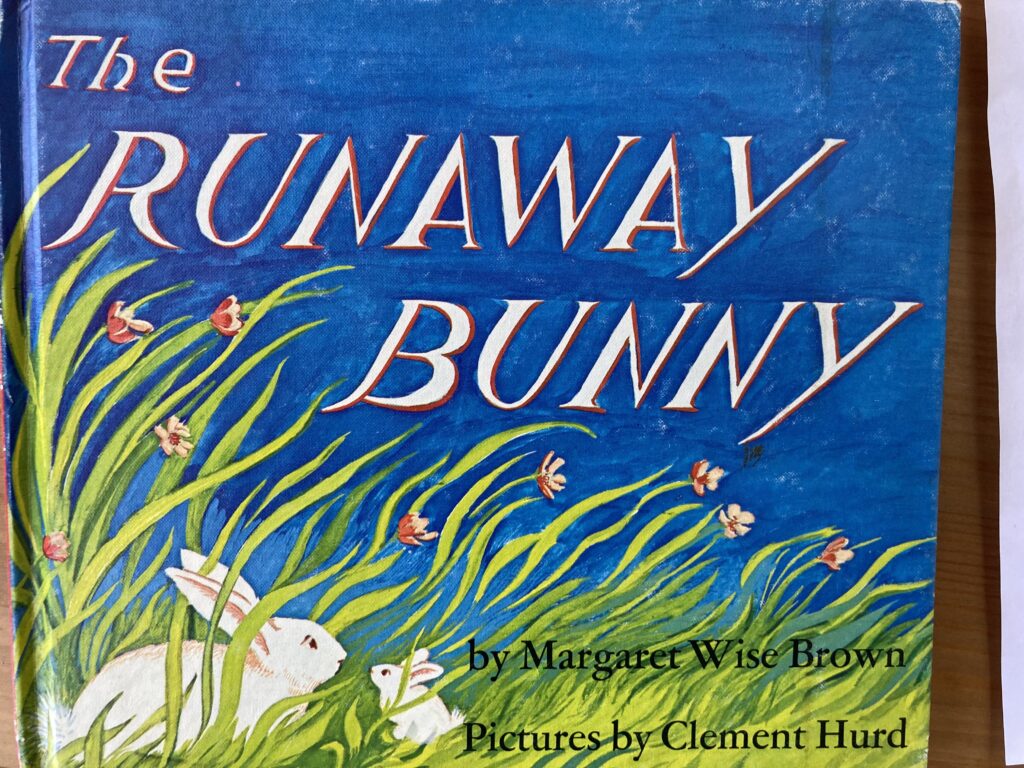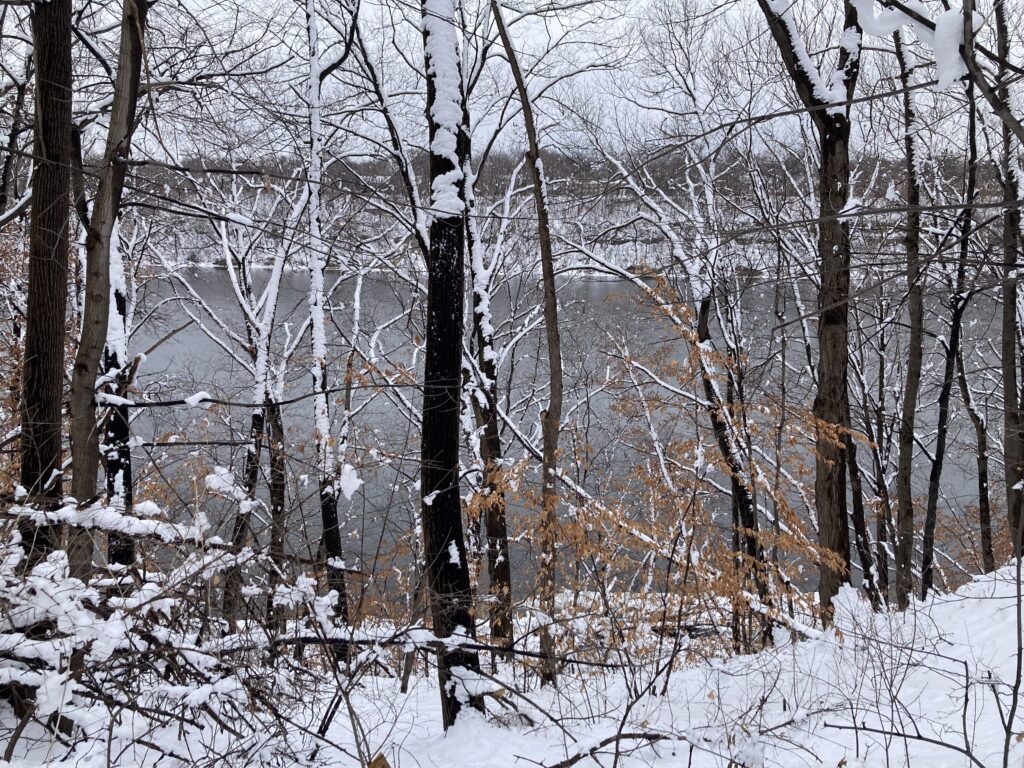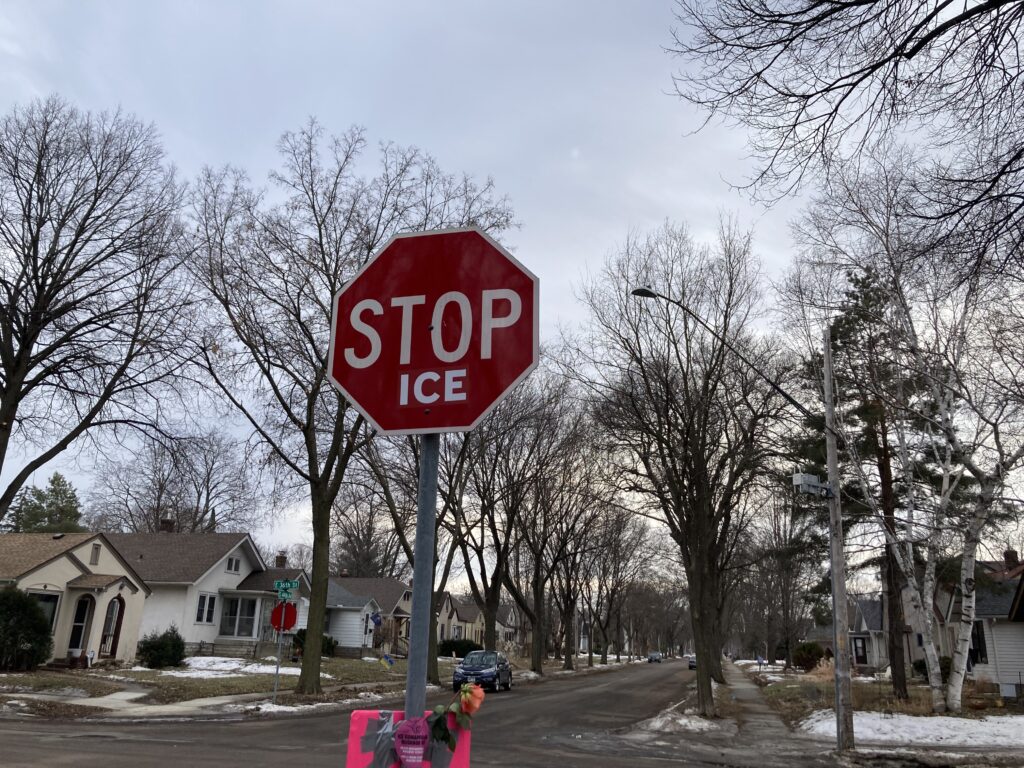4.3 miles
minnehaha falls and back
35 degrees
A much better run today than yesterday. One difference: I had a big snack — yogurt, blue, pumpkin seed granola — before I went out. It was sunny and above freezing. Less layers! 1 pair of tights, shorts, 1 shirt, 1 pull-over, gloves, baseball cap. Listened to the snow melting, wheels whooshing, kids playing, a playground whistle blowing, grit scratching the asphalt as I ran sound, my “Bunnies and Rabbits” playlist on the way back. Listened to Jenny Lewis’ “Rabbit Fur Coat” again and want to look up rabbit fur coats — how do they compare to mink or fox in terms of status? who wears rabbit?
10 Things
- looked up — cerulean blue sky, no clouds, no birds, no planes
- drip drip drip drip — water falling down the gutter
- the strong smell of weed — like a skunk — in the 44th street parking lot, or was it the locks and dam no. 1 lot?
- the annual puddles have returned on certain neighbor’s sidewalks
- a thin sheet of ice on the river
- a few more cars in the falls parking lot, a few more people at the overlook
- an older man standing near my favorite spot, reading the old — how old? 1940s or 50s? — plaque about the falls, his partner just ahead, patiently waiting
- the cobblestones were clear! no ice, no snow, only 1 or 2 puddles
- running south, nearing the double bridge, my eyes fixed on a something shining BRIGHT — sun reflecting off of an object — the top of a trashcan?
- standing behind the Rachel Dow Memorial bench, stretching and looking down at the river, out and over to the other side, watching a car travel the east river road
updated in the evening, rabbit-related: I’m watching Heather Cox Richardson’s Politics Chat for today (she is amazing), and she said in her discussion of Hillary Clinton’s closed testimony on the Epstein files today, she was an interesting Secretary of State, I think, but that’s a rabbit hole I won’t go down. This isn’t the first time HCR has used that expression when discussion a topic she doesn’t have time for, it’s often a rabbit hole she won’t go down. Another update, a few minutes later: she referenced a rabbit hole again!
rabbit fur coat
My “research” didn’t yield that much, but enough to guess that the coat symbolizes Lewis’ mom’s obsession with attaining status, obtaining wealth.
Commercial fur trade of rabbit took off in the 20s. Less expensive than other animal furs, easily dyed and plucked to resemble other fur. A more accessible status symbol.
crepuscular
A few days ago, I used the word crepuscular (“Rabbits are crepuscular grazers” — 24 feb 2026) and suggested it would make a good title for a poem. This morning I’m exploring how other poets have used the word in their poems.
crepuscule: twilight (rare: noun)
crepuscular: of or relating/resembling1 twilight;
of an animal active in twilight (adjuective)
1 — from The Possessed / John Berryman
There was a time crepuscular was mild,
The hour for tea, acquaintances, and fall
Away of all day’s difficulties, all
Discouragement. Weep, you are not a child.
The equine hour rears, no further friend,
Intolerant, foam-lathered, pregnant with
Mysterious grave watchers in their wrath
Let into tired Troy. You are near the end.
Midsummer Common loses its last gold,
And grey is there. The sun slants down behind
A certain cinema, and the world is blind
But more dangerous. It is growing cold.
Light all the lights, heap wood upon the fire
To banish shadow. Draw the curtains tight.
But sightless eyes will lean through and wide night
Darken this room of yours. As you desire.
2 — from Le crépuscule du soir / Charles Baudelaire / trans. Roy Campbell
But insalubrious demons of the airs,
Like business people, wake to their affairs
And, flying, knock, like bats, on walls and shutters.
Now Prostitution lights up in the gutters
Across the glimmering jets the wind torments.
Like a huge ant-hive it unseals its vents.
On every side it weaves its hidden tracks
Like enemies preparing night-attacks.
3 — from Crepuscle with Muriel / Marilyn Hacker
the void of an hour seeps out, infects
the slit of a cut I haven’t the wit to fix
with a surgeon’s needle threaded with fine-gauge silk
as a key would thread the cylinder of a lock.
But no key threads the cylinder of a lock.
Late afternoon light, transitory, licks
the place of the absent cup with its rough tongue, flicks
itself out beneath the wheel’s revolving spoke.
Taut thought’s gone, with a blink of attention, slack,
a vision of “death and distance in the mix”
(she lost her words and how did she get them back
when the corridor of a day was a lurching deck?
The dream-life logic encodes in nervous tics
she translated to a syntax which connects
intense and unfashionable politics
with morning coffee, Hudson sunsets, sex;
then the short-circuit of the final stroke,
the end toward which all lines looped out, then broke).
4 — twilight school / early 20th-century Italy / Britannica entry
crepuscolarismo, (Italian: “twilight school”), a group of early 20th-century Italian poets whose work was characterized by disillusion, nostalgia, a taste for simple things, and a direct, unadorned style. Like Futurism, a contemporaneous movement, crepuscolarismo reflected the influence of European Decadence and was a reaction to the florid ornamental rhetoric of the Italian author Gabriele D’Annunzio. It differed from the militant Futurist movement in its passivity, but both movements expressed the same spirit of desolation, and many crepuscolari later became futuristi.
crepuscular animals / wikipedia
Ten examples of crepuscular animals, active at dawn and dusk, include raccoons, deer, rabbits, skunks, bobcats, foxes, bats, house cats, coyotes, and moose, with many mammals, insects, and some birds fitting this activity pattern to avoid extreme heat and predators.
Bats! I’ve been gathering poetic lines about bats for several years now! Not because I like bats (although, after all my thinking about them, I’m starting to!), but because the poetic language used to describe them is helpful in my own thinking about how I navigate the world in my less defined light.
- I’m interested in this idea of resembling, particularly in relation to light and my perception of it as I lose more cone cells. Does crepuscular describe me? Am I perpetually in the light of dawn and dusk? I’m also interested in it in terms of time, where twilight = that small/brief in-between time before day/light turns to night/darkness, the stage just before a final loss (in my case, all of my central vision) ↩︎
Get Out ICE
I’ve continued to tag my entries with “Get out ICE” because ICE is still here in Minnesota and is still awful. But that is about it; it’s time to return to posting examples of ice out. Here’s one small “ICE OUT” example that I heard about as I listened to a running podcast. As she was recounting her 100k 8-hour trail race, Molly Seidel wore “ICE OUT” on her vest. She said it was important for her to make this statement:
I haven’t been super vocal on social media just because I don’t feel like that’s where I can put my voice to best use sometimes. But I think being able to make a statement on what I wear through what I do and wear that for 62 miles mattered a lot to me.
Molly Seidel / Ali on the Run podcast
I can’t remember if I mentioned it here or just on Facebook, but I have posted about Olympic athletes speaking out against ICE, most notably Jessie Diggins. Local professional sports teams, like the Timberwolves and the Frost are too.
Somewhat related, but also very different, cycling communities in the twin cities have been very vocal in their opposition to ICE. A week after Alex Pretti was murdered, thousands of cyclists did a ride in honor of him. And Recovery Bike Shop on Central in NE Minneapolis has been very active, both in resistance and in caring for immigrant communities. Just today they posted a flyer about training people for bike patrols and wrote this:
This is a game changer for our communities. Patrollers on bikes can cover A LOT more ground and reach active incidents much faster.
And bikes are not trackable like cars.
We’re still walking Central Ave TONIGHT (and every Thursday) at 5:30.
And the Holland Neighborhood Association will be at Recovery Bike Shop at 7:00pm with Council Member Elliott Payne. Find out ways to engage in the community. This is where change happens.
facebook




